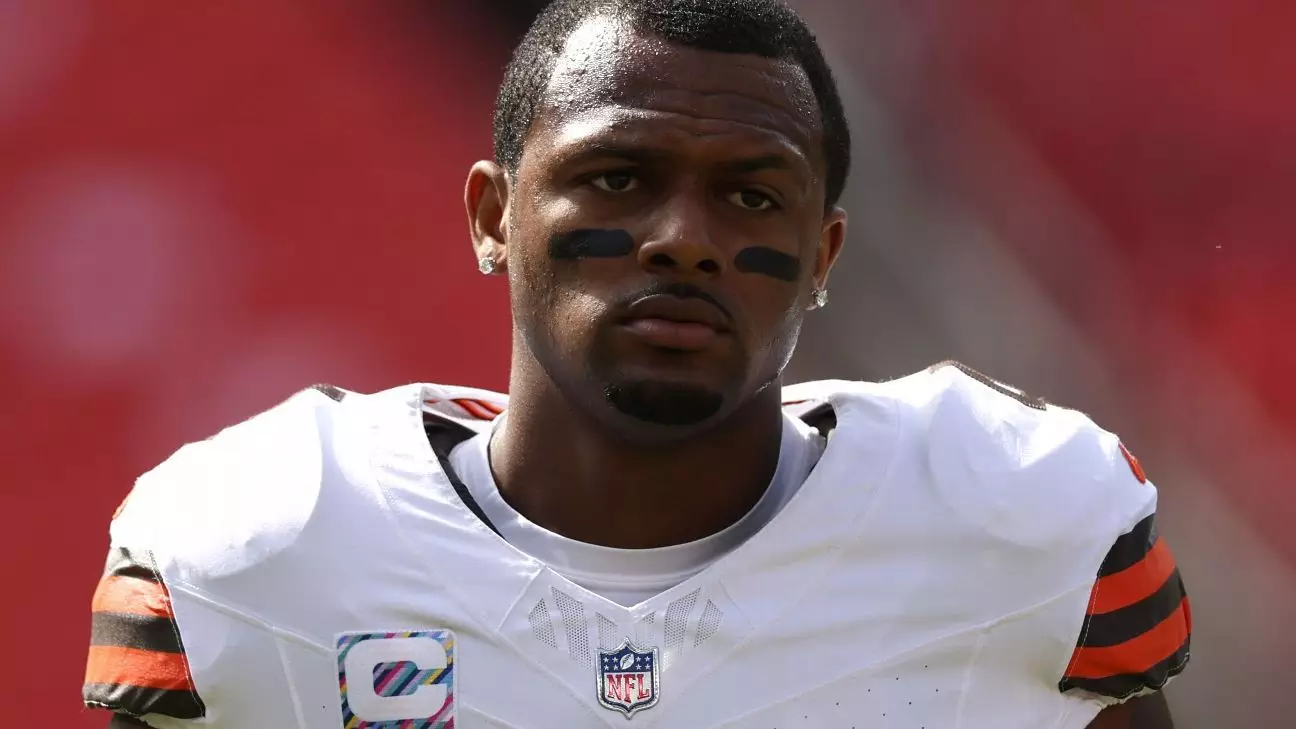The story of NFL quarterback Deshaun Watson continues to unfold with a potent mix of legal battles and athletic performance, heightening scrutiny both on and off the field. Recently, Watson faced a significant allegation of sexual assault and battery, the resolution of which has sparked conversation not just about his personal conduct but also about the broader implications for athletes involved in similar controversies.
In a surprising twist just weeks after the lawsuit was filed on September 9 in Harris County, Texas, the case was settled, as announced by attorney Tony Buzbee. „We have now resolved our client’s claim with Deshaun Watson,“ he confirmed to ESPN, noting that the terms of the settlement would remain confidential. This brings to light a frustrating aspect of legal proceedings related to high-profile figures: settlements often obscure the details that could provide clarity or context for the public. Watson’s camp, represented by attorney Rusty Hardin, corroborated the resolution, highlighting the complexities of navigating legal issues intertwined with public perception and professional responsibilities.
The lawsuit alleges that the encountered events unfolded in October 2020, prior to a planned dinner between Watson and the woman, identified as Jane Doe. At this point in time, Watson was still aligned with the Houston Texans, thus the accusations not only drag personal reputations into the fray but also impact franchise credibility. The swift resolution of this particular lawsuit raises questions about accountability and the effectiveness of legal recourse for victims in sports-related assaults.
While Watson has consistently denied any wrongdoing, claiming through his attorney he is innocent, the relentless stream of allegations since 2021 continues to cloud his reputation. Indeed, Watson faced similar accusations from over two dozen women, leading to an 11-game suspension in the 2022 season. This context is crucial as one considers his current endeavors on the field with the Cleveland Browns.
The NFL has its procedures, particularly the personal conduct policy, and the league is now reviewing this latest accusation. Interestingly, Watson has not been placed on the commissioner’s exempt list, which can indicate the seriousness of allegations when no formal criminal charges have been issued. Nevertheless, the league’s decision to allow Watson to play while also undertaking a review speaks volumes about the ongoing complexities within sports governance and player conduct management amidst serious allegations.
Compounding the situation, two additional witnesses were slated to speak with the NFL, according to statements from Buzbee. However, there’s been no indication whether this discussion will continue post-settlement, illustrating the unpredictable nature of legal proceedings connected to sporting events.
Watson’s past doesn’t merely exist in the realm of legalese; it has direct ramifications for his professional life. In a high-profile trade that involved six draft picks, including three first-rounders, the Browns secured Watson with a groundbreaking fully guaranteed contract worth $230 million—a clear message of faith in his abilities regardless of the ongoing scrutiny. However, performance metrics tell a different story this season, as Watson has struggled significantly, evidenced by a QBR of just 21.0. This disparity underscores how personal affairs can directly correlate with athletic performance—a phenomenon not uncommon in high-pressure environments.
As Watson navigates the aftermath of numerous legal challenges, the discourse surrounding him illustrates the precarious balance between professional sports, personal conduct, and public expectation. Yes, settling this lawsuit might bring him peace of mind; however, his long-term legacy in the NFL may be irrevocably stained, overshadowed by the gravity of the claims made against him. As he continues to play for the Browns, the scrutiny will likely remain heightened, not just from fans, but from a league increasingly focused on the personal conduct of its athletes.
Ultimately, the saga of Deshaun Watson serves as a reminder of how intertwined the worlds of sport, law, and social judgment can be, an issue that is likely to persist in shaping the narrative of professional athletics for years to come. The question remains: can an athlete fully overcome the shadows of past allegations, or do they forever alter the landscape of their career?








Napsat komentář